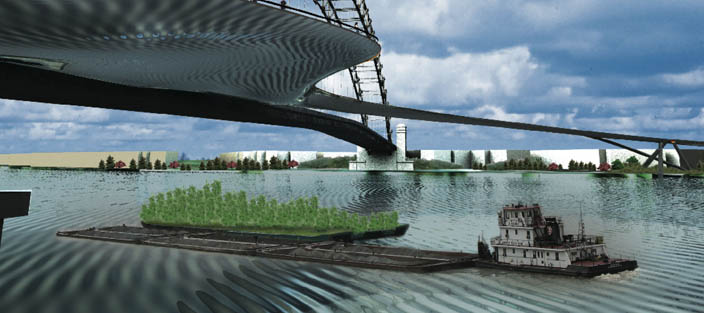The project activates the Ohio River banks by connecting
pedestrians, bikes, and boats to a new recreation center on the
south bank and a linear park to the north.
Barges flexibly serve as cafes, gardens or docks. Underpasses below
the rail lines at the south bank invite passage from the river’s edge
to the recreation center.
The sweeping arc of the pedestrian bridge connects the banks of
the Ohio to the West End Bridge at a single point, reenacting the
confl uence of the Allegheny and Monongahela rivers to the east.
The convergence of the two bridges links the north and south
riverfronts as well as the neighborhoods above them, which creates
an opportunity for increased interaction and development of the
area.
For centuries, the rivers have played an important role in
Pittsburgh’s economy by serving to transport materials and goods.
The designed, recreational barges are key to the project since they
shift the use and perception of the river. The Ohio no longer simply
carries commercial traffi c, but it is a destination for people to enjoy.
The portable barges provide additional green spaces that can reach
the most remote neighborhood along the river with a fl exibility of
use appropriate to the platforms.

